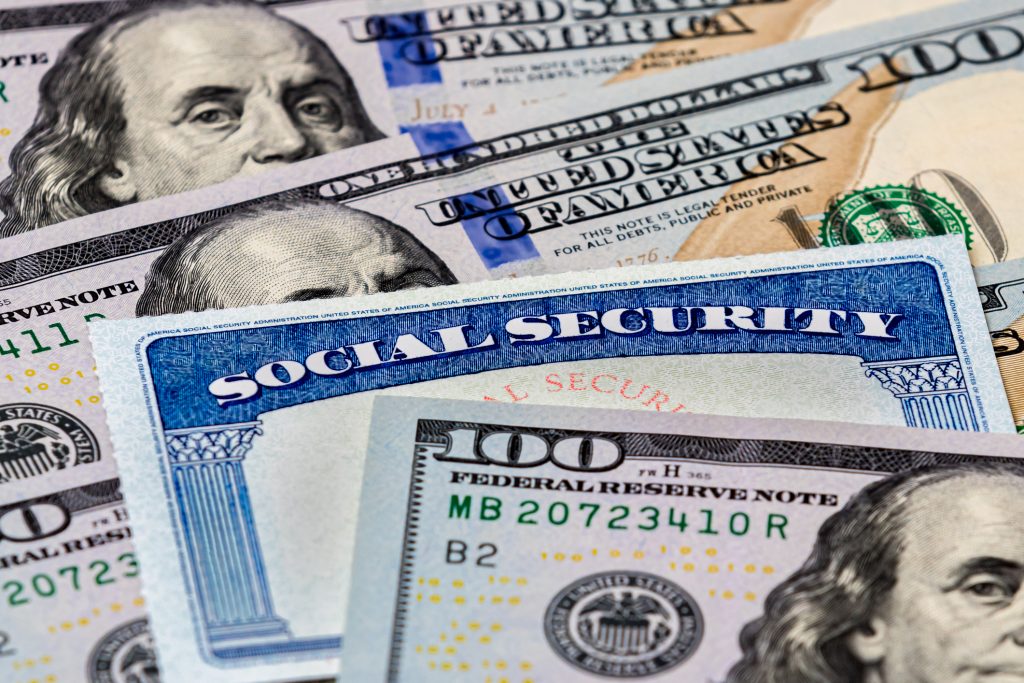Recessions can be worrisome no matter when they happen, but they’re especially scary when you’re retired and living off your savings. You may have no other income sources besides your retirement accounts, and they could lose value when you need them most.
It’s hard to say when a recession will hit, though rumors are floating around that one could be on the way. If you’re worried, you can do a few things to help yourself better weather the challenges a recession could bring. Consider doing the following five things if you haven’t already.
Where to invest $1,000 right now? Our analyst team just revealed what they believe are the 10 best stocks to buy right now. Learn More »

Image source: Getty Images.
1. Build your cash reserves
Your investments may dip during a recession, and that’s generally not a great time to sell because you’ll have to give up a larger percentage of your holdings to get the money you need. But when you really need money in a hurry, you may not have a choice.
It’s better to avoid this scenario by ensuring you have at least 12 to 24 months of living expenses in a high-yield savings account or money market fund. This way, you have some savings unaffected by the ups and downs of the stock market to draw upon as needed.
This also gives you more flexibility regarding future retirement account withdrawals. With extra cash on hand, you may be able to afford to wait until your investments rebound before taking any more money out.
2. Reduce spending, if possible
Reducing spending during a recession is another strategy that can help you avoid draining your savings too quickly. Prioritize your essential costs, like housing, healthcare, groceries, and transportation, and consider reducing or eliminating discretionary purchases if a recession occurs.
3. Review your investment portfolio
Ensure your portfolio is adequately diversified so you’re not taking on too much risk. A common rule of thumb says you should invest 110 minus your age as a percentage in stocks and the remainder in bonds, but in a recession, you may want to keep a little more in bonds if it helps you sleep better at night. Bonds don’t have the growth potential that stocks do, but there’s also a smaller risk of loss so they’re a good option when you’re trying to protect what you already have.
You probably don’t want to avoid stocks altogether, though. Ideally, you want a portion of your savings invested in at least 25 stocks across different industries. You could also invest in an index fund. These are bundles of hundreds of investments you buy together, and they’re some of the most affordable investments around. With some of the top S&P 500 index funds, you only pay about $3 per year for every $10,000 you have invested in the fund.
4. Pay down high-interest debt
High-interest debt, like credit card debt, is a burden all the time, but it can really be a liability in a recession when you’re trying to keep your costs down. Prioritize paying off these debts as quickly as possible if you can spare any extra cash.
You may qualify for a balance transfer card. These give you a 0% introductory interest rate, so your balance won’t grow for the first few months of card ownership. You could also take out a personal loan if you want a predictable monthly payment.
5. Optimize your Social Security claiming strategy if you haven’t already signed up
Social Security’s guaranteed monthly checks are a comfort in a recession, but they likely won’t cover all your costs. If you want to stretch your benefits as far as possible, choose the claiming age that makes the most sense for your financial situation and life expectancy.
Every month you delay benefits increases the size of your checks, but that also means you have another month you have to cover your expenses all on your own. If you can self-fund your retirement expenses for a little while, though, and you expect to live into your 80s or beyond, you might get a larger lifetime benefit by delaying your application, possibly until you qualify for your maximum benefit at 70.
Try to remain calm
Recessions can be tough, especially if your investments lose money. But that doesn’t mean you’ve done anything wrong or that your accounts will never recover. Recessions are a normal part of our economic cycle, and if you take the steps listed above and avoid rash decisions, you’ll find them a little easier to bear.
The $22,924 Social Security bonus most retirees completely overlook
If you’re like most Americans, you’re a few years (or more) behind on your retirement savings. But a handful of little-known “Social Security secrets” could help ensure a boost in your retirement income. For example: one easy trick could pay you as much as $22,924 more… each year! Once you learn how to maximize your Social Security benefits, we think you could retire confidently with the peace of mind we’re all after. Simply click here to discover how to learn more about these strategies.
View the “Social Security secrets” »
The Motley Fool has a disclosure policy.
 benzinga.com
benzinga.com fool.com
fool.com



